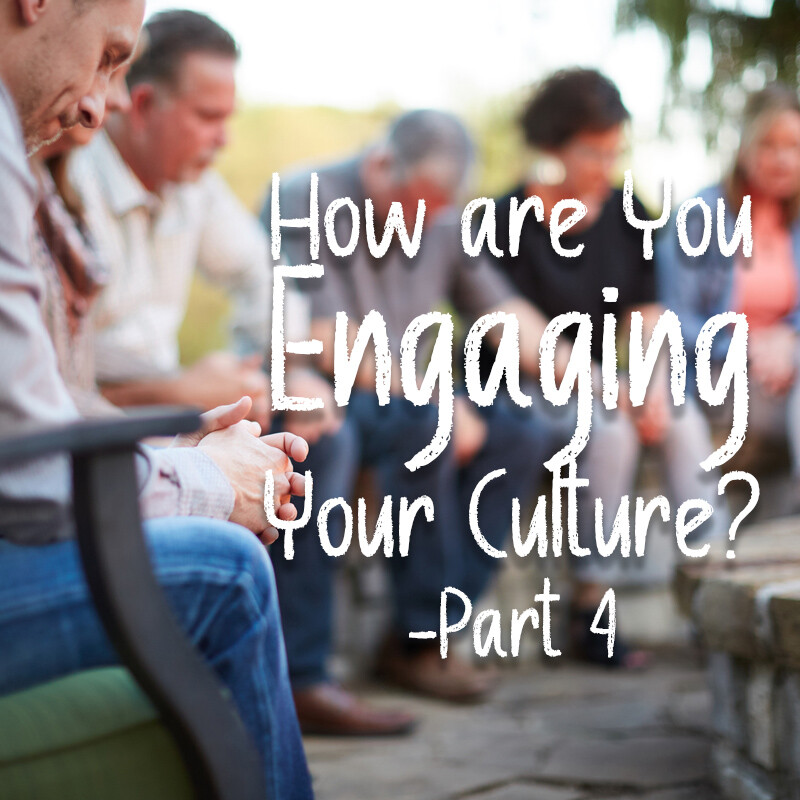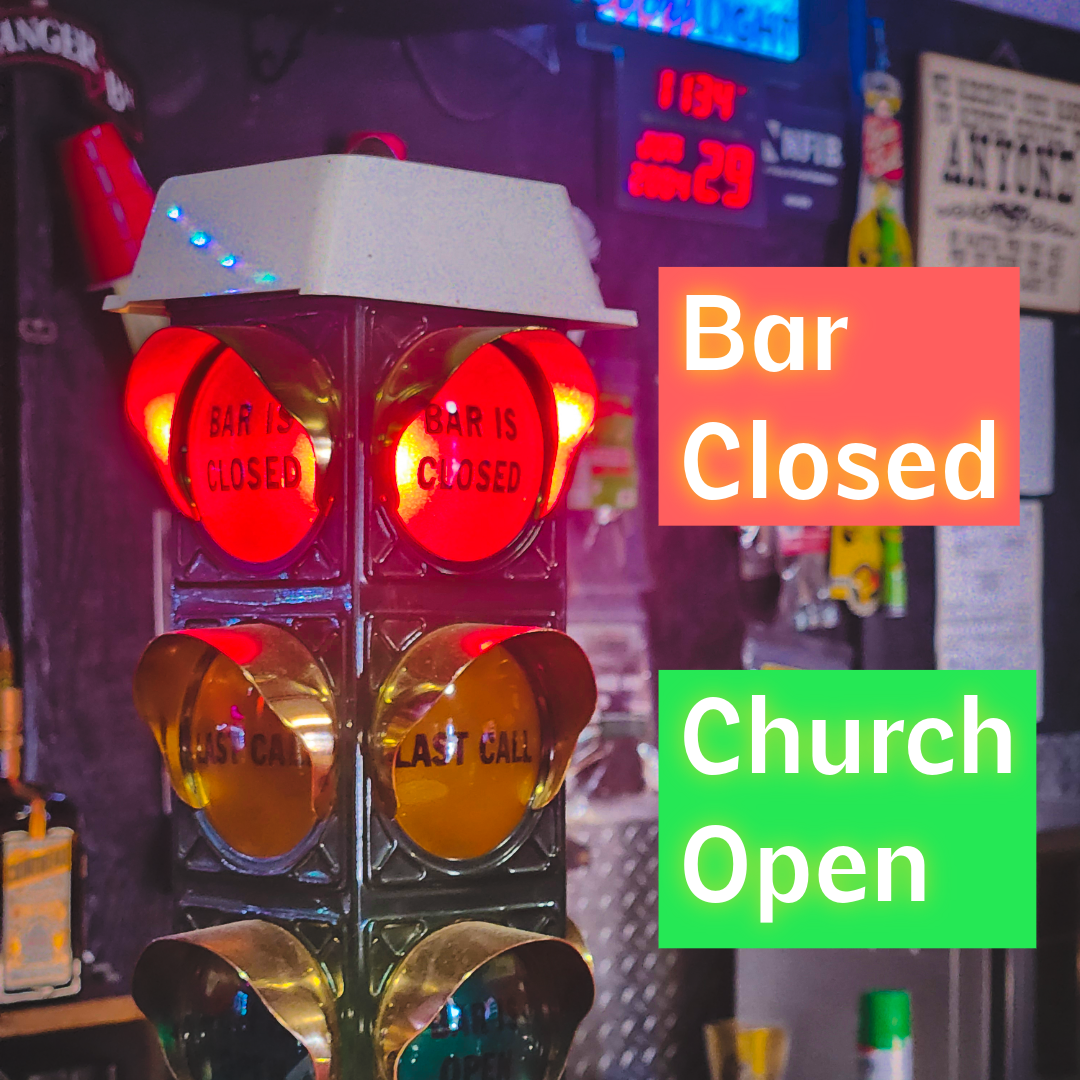
We’ve looked at several questions thus far in this series. 1) What is right? 2) What is missing? 3) What is confused? When you think about your own context for ministry, what is right? What needs celebrated? What is missing? Where are the opportunities for the people of God to creatively fill in the gaps that exist in your community or neighborhood? What is confused? What is not clear, and needs clarified? One of the things you’ll note is the importance of listening and observing in order to really understand the specific needs and challenges of your community or neighborhood.
Today we want to look at another question: what is wrong? What is wrong where you live, work and play? Do you know what is wrong in your own neighborhood?
I think it’s fair to say that we Christians are sometimes known for what we’re against or what we see wrong in the world. In their 2007 book UnChristian: What a Generation Really Thinks about Christians… and why it Matters, David Kinnaman and Gabe Lyons shared their research of young people outside the Christian faith and their impressions of Christians. Some of the themes that emerged were that Christians were judgmental, too political and anti-homosexual.
When asked “what is wrong” in the world today, most of us can probably respond with “a lot!” There are many things which are broken and outside the design of what God intended for our world and its people. Crime. Divorce. Sexual immorality in all of its forms. Abuse. Greed. White Christian Nationalism. Racism. Pornography. Drug and alcohol abuse. Poverty. Suffering. Human trafficking. Violence. We could spend the better part of a day making a list of all the things wrong in this world or all the ways in which the world is broken and has fallen short of God’s glorious design. It would be exhausting.
How do we respond to what is wrong? The Apostle Paul’s example at Mars Hill has been a guide for us through this series. In Acts 17:16 we learn that “While Paul was waiting for them in Athens, he was greatly distressed to see that the city was full of idols.” Paul was distressed by what he saw in Athens. We ought to be distressed by what we witness in our own world today. Paul was distressed, but he didn’t rant angrily at the people of Athens, rather he engaged them with the Gospel of Jesus Christ.
Look at Jesus’ ministry. Jesus certainly observed much that was wrong in His world and time. People wanted Him to rant against the evils of the Roman empire but He didn’t. The Pharisees wanted Him to get tough on sinners but He often frustrated them by eating and drinking with all the wrong people. I find it interesting that one of the strongest reactions from Jesus found in the Gospel accounts wasn’t directed at the evils of society but rather at what was going on in the Jewish temple system.
Mark 11:15-17
On reaching Jerusalem, Jesus entered the temple courts and began driving out those who were buying and selling there. He overturned the tables of the money changers and the benches of those selling doves, and would not allow anyone to carry merchandise through the temple courts. And as he taught them, he said, “Is it not written: ‘My house will be called a house of prayer for all nations’? But you have made it ‘a den of robbers.’”
What was wrong? People, particularly outsiders, were being kept from God by Jewish tradition and Jesus was calling out the lack of faithful devotion on the part of those who claimed to believe. When you look at His quotes from the Old Testament Prophets Isaiah and Jeremiah, it’s clear that Jesus is speaking against the Jewish nationalism of the temple system and the lack of true devotion to God by the Jewish people.
In Acts 6 we find that the early church had to address some wrongs that were occurring: Greek speaking widows were being overlooked and the apostles had to address it and make things right.
What do we do with what is wrong in our world? Do we ignore it? Do we rail against the evils of the world? What do you do with what is wrong in your neighborhood or community?
I think it requires a lot of wisdom and grace. We cannot ignore what’s wrong in our world, particularly what’s wrong in our neighborhoods and communities. If we love our neighbors, we cannot ignore the injustices and wrongs. I think there’s a fair amount of biblical evidence to suggest the “wrongs” are much closer to us than we care to admit. It’s easy to rant against the evils of society: abortion, homosexuality and the like while ignoring the fact that our congregations may harbor wrongs like racism, greed, or sexual abuse. It’s easy to rant against the wrong of illegal immigration while ignoring the fact that people who speak Spanish are often mistreated in our local communities.
What do you do with what is wrong? I think the correct response and the loving and just response requires God’s people to act in ways that confront and stop the wrongs in our midst.
What is wrong where you live, work and play? Who is being treated unjustly? What breaks God’s heart and ought to break your heart too? What is keeping people from experiencing the flourishing that God intended for His creation? Do you know what is wrong in your community or how the Lord may be calling you to act in order to bring it to a stop?
If we really care about the places where God has sent us, then we’ll care about what is wrong that needs made right.
Christ’s Peace,
Lance
CGGC eNews—Vol. 15, No. 42





Login To Leave Comment